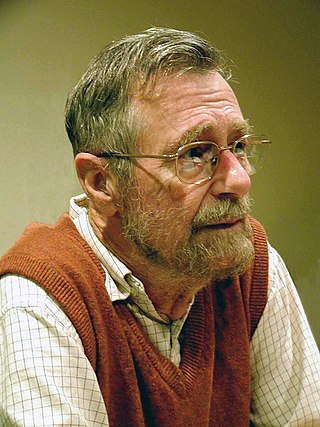
Edsger Wybe Dijkstra was a Dutch computer scientist, programmer, software engineer, and science essayist.

Niklaus Emil Wirth was a Swiss computer scientist. He designed several programming languages, including Pascal, and pioneered several classic topics in software engineering. In 1984, he won the Turing Award, generally recognized as the highest distinction in computer science, "for developing a sequence of innovative computer languages".

The ACM A. M. Turing Award is an annual prize given by the Association for Computing Machinery (ACM) for contributions of lasting and major technical importance to computer science. It is generally recognized as the highest distinction in computer science and is often referred to as the "Nobel Prize of Computing".
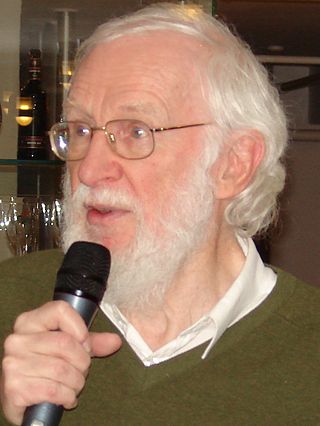
Peter Naur was a Danish computer science pioneer and 2005 Turing award winner. He is best remembered as a contributor, with John Backus, to the Backus–Naur form (BNF) notation used in describing the syntax for most programming languages. He also contributed to creating the language ALGOL 60.

Alfred Vaino Aho is a Canadian computer scientist best known for his work on programming languages, compilers, and related algorithms, and his textbooks on the art and science of computer programming.
Andrey Petrovich Yershov was a Soviet computer scientist, notable as a pioneer in systems programming and programming language research.

Stephen Richard "Steve" Bourne is an English computer scientist based in the United States for most of his career. He is well known as the author of the Bourne shell (sh), which is the foundation for the standard command-line interfaces to Unix.
ALGOL W is a programming language. It is based on a proposal for ALGOL X by Niklaus Wirth and Tony Hoare as a successor to ALGOL 60. ALGOL W is a relatively simple upgrade of the original ALGOL 60, adding string, bitstring, complex number and reference to record data types and call-by-result passing of parameters, introducing the while statement, replacing switch with the case statement, and generally tightening up the language.
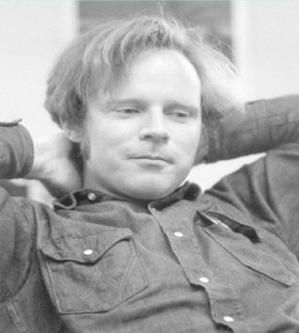
Robert W Floyd was a computer scientist. His contributions include the design of the Floyd–Warshall algorithm, which efficiently finds all shortest paths in a graph and his work on parsing; Floyd's cycle-finding algorithm for detecting cycles in a sequence was attributed to him as well. In one isolated paper he introduced the important concept of error diffusion for rendering images, also called Floyd–Steinberg dithering. He pioneered in the field of program verification using logical assertions with the 1967 paper Assigning Meanings to Programs. This was a contribution to what later became Hoare logic. Floyd received the Turing Award in 1978.
In theoretical computer science, an algorithm is correct with respect to a specification if it behaves as specified. Best explored is functional correctness, which refers to the input-output behavior of the algorithm.
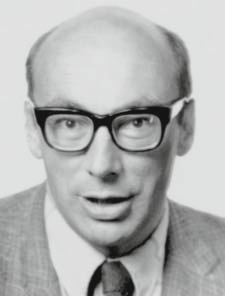
Peter John Landin was a British computer scientist. He was one of the first to realise that the lambda calculus could be used to model a programming language, an insight that is essential to the development of both functional programming and denotational semantics.
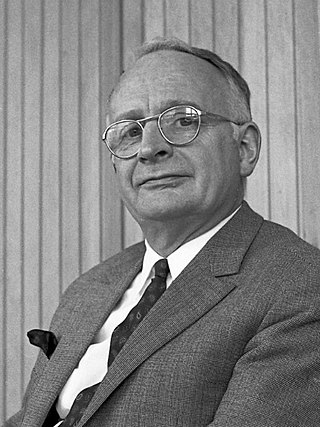
Adriaan "Aad" van Wijngaarden was a Dutch mathematician and computer scientist. Trained as a mechanical engineer, Van Wijngaarden emphasized and promoted the mathematical aspects of computing, first in numerical analysis, then in programming languages and finally in design principles of such languages.

Barbara Liskov is an American computer scientist who has made pioneering contributions to programming languages and distributed computing. Her notable work includes the introduction of abstract data types and the accompanying principle of data abstraction, along with the Liskov substitution principle, which applies these ideas to object-oriented programming, subtyping, and inheritance. Her work was recognized with the 2008 Turing Award, the highest distinction in computer science.

Friedrich Ludwig "Fritz" Bauer was a German pioneer of computer science and professor at the Technical University of Munich.
Eric "Rick" C. R. Hehner is a Canadian computer scientist. He was born in Ottawa. He studied mathematics and physics at Carleton University, graduating with a Bachelor of Science (B.Sc.) in 1969. He studied computer science at the University of Toronto, graduating with a Master of Science (M.Sc.) in 1970, and a Doctor of Philosophy (Ph.D.) in 1974. He then joined the faculty there, becoming a full professor in 1983. He became the Bell University Chair in software engineering in 2001, and retired in 2012.

Quicksort is an efficient, general-purpose sorting algorithm. Quicksort was developed by British computer scientist Tony Hoare in 1959 and published in 1961. It is still a commonly used algorithm for sorting. Overall, it is slightly faster than merge sort and heapsort for randomized data, particularly on larger distributions.

Micha Sharir is an Israeli mathematician and computer scientist. He is a professor at Tel Aviv University, notable for his contributions to computational geometry and combinatorial geometry, having authored hundreds of papers.
Charles Hodgson Lindsey was a British computer scientist, most known for his involvement with the programming language ALGOL 68.

Maurice Paul Nivat was a French computer scientist. His research in computer science spanned the areas of formal languages, programming language semantics, and discrete geometry. A 2006 citation for an honorary doctorate (Ph.D.) called Nivat one of the fathers of theoretical computer science. He was a professor at the University Paris Diderot until 2001.
IFIP Working Group 2.1 on Algorithmic Languages and Calculi is a working group of the International Federation for Information Processing (IFIP).













